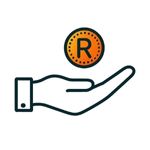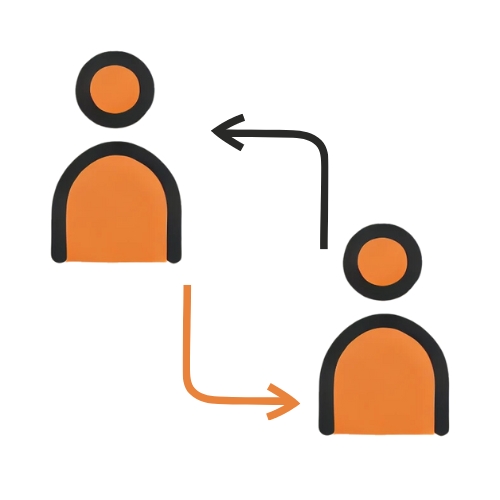
Getting a loan without submitting a lot of documents is something many South Africans are interested in, especially when money is needed urgently. Sometimes, people do not have payslips, bank statements, or proof of income, and this can make it harder to apply for a loan the traditional way. In these cases, lenders who offer loans with fewer paperwork requirements can be a solution. However, even if lenders do not ask for full documents, they usually still need basic information like your ID number, proof of where you live, and confirmation that you have a bank account.
DISCLAIMER: The content of this article is based on publicly available information from the National Credit Act (NCA) as of the date of publication. Legal standards and interpretations may change, and the enforcement of specific provisions may vary depending on the circumstances.
Key Takeaways
- Minimal Documents Still Needed: Even for no-document loans in South Africa, lenders usually require a South African ID, proof of residence, and basic banking information.
- Higher Costs and Risks: No-document loans often have higher interest rates, short repayment periods, and a greater risk of falling victim to predatory lenders.
- Alternative Options Are Safer: Secured loans, borrowing from family or friends, and formal microloans with minimal paperwork can offer more affordable and reliable choices.
What Is A Low/No Documentation Loan?
A low or no documentation loan is a type of lending product where a borrower can apply for credit without needing to provide detailed information about their employment, income, or financial assets. These loans are structured to assist individuals who may not have access to the traditional paperwork generally required during a standard loan application.
How A Low/No Documentation Loan Works
Borrowers who make use of low or no documentation loans often have income sources that do not fit the usual mould required for standard loan applications. This may include individuals with alternative investments, those who are self-employed, or people who have structured their finances in a way that reduces their reported income for tax purposes.
When assessing an application for this type of loan, lenders typically place greater emphasis on other indicators of financial reliability. Lenders may look closely at the borrower’s credit score, their ability to offer a deposit that is larger than usual, and alternative forms of evidence such as recent bank statements. Because these loans involve higher risks for the lender, they often carry interest rates that are higher than those charged for conventional loans requiring full documentation.
Why Do People Seek Loans Without Documents?
Several reasons drive individuals to pursue loans with minimal documentation:
- Informal Employment: Many South Africans work in the informal sector and may not have formal payslips or employment contracts.
- Urgent Financial Needs: Situations like medical emergencies or urgent repairs may necessitate quick access to funds.
- Credit Challenges: Individuals with poor credit histories might find it difficult to secure traditional loans and may turn to alternative lending options.
- Privacy Concerns: Some borrowers prefer not to disclose extensive personal financial information.
These factors make no-document loans an attractive option for those who might otherwise be excluded from the formal credit market.
About Arcadia Finance
Arcadia Finance: hassle-free loans, no fees. Pick from 19 NCR-registered lenders and enjoy a quick, transparent process designed with your needs in mind.
What Does “No Documents” Really Mean?
When lenders advertise “no document” loans, they typically mean that the application process is streamlined and requires fewer documents than traditional loans. However, certain basic requirements still apply. Applicants are usually expected to provide:
- Valid South African ID: To verify identity and citizenship.
- Proof of residence: Such as a utility bill or lease agreement, to confirm the applicant’s address.
- Bank statements: Often from the past three months, to assess income and spending habits.
- Contact information: Including phone number and email address.
These requirements help lenders evaluate the risk associated with lending money without the extensive documentation typically required.
DISCLAIMER: Loan types described above are general examples. Terms, conditions, and availability may vary between lenders. Always check the full loan agreement carefully before committing to any borrowing.

Common Types of No-Document Loans Available in South Africa
There are several types of loans that require minimal documentation, catering to individuals who may not have traditional proof of income or a strong credit history. Below are the common types:

Payday Loans
Payday loans are short-term loans designed to provide quick cash to borrowers who need funds before their next payday. These loans typically require minimal documentation, often just a valid South African ID and proof of income. The loan amounts are usually small, and the repayment is due on the borrower’s next payday. While convenient, payday loans often come with high interest rates and fees, making them an expensive form of credit if not repaid promptly.

Personal Microloans
Personal microloans are small, unsecured loans offered by microfinance institutions or alternative lenders. These loans are based on the borrower’s bank transaction history rather than traditional credit checks. Borrowers need to provide basic identification and recent bank statements to demonstrate their ability to repay the loan. Personal microloans are accessible to individuals with informal income sources or those who may not qualify for traditional bank loans.

Pawn Loans
Pawn loans involve borrowing money by offering a personal valuable item as collateral. The borrower brings an item, such as jewelry or electronics, to a pawnshop, which assesses its value and offers a loan based on a percentage of that value. No credit checks or proof of income are required. If the borrower repays the loan within the agreed period, they retrieve their item; otherwise, the pawnshop may sell the item to recover the loan amount.

Peer-to-Peer (P2P) Lending
Peer-to-peer lending platforms connect individual borrowers with investors willing to fund loans. These platforms often have more flexible lending criteria compared to traditional banks. Borrowers provide basic personal and financial information, and the platform assesses their creditworthiness. While some documentation is required, P2P lending can be an option for those with limited access to conventional credit.
Where to Apply for a Loan Without Documents
In South Africa, several lenders offer loans with minimal documentation requirements. These options are designed to provide quick access to funds for individuals who may not have traditional paperwork like payslips or extensive credit histories.
| Lender/Platform | Loan Amount | Application Method | Basic Requirements | Key Features |
|---|---|---|---|---|
| Absa Instant Loan | R350 to R8 000 | ATM, cellphone banking, online | Absa bank account, income R3,000+, SA ID | Quick payout, repayment within 35 days, low fees |
| MyMulah | Up to R8 000 | Online | SA ID, proof of income, active bank account | Transparent fees, same-day payout |
| Sunshine Loans | R500 to R4 000 | Online | Employment, online bank statement submission | Fast approval, NCR-registered |
| Wonga South Africa | R500 to R5 000 | Online | Minimal requirements | 100% online, quick decision |
| Finance 27 | Up to R6 000 | Online | Basic personal and bank information | Same-day loans, flexible repayment |
DISCLAIMER: The lenders mentioned are provided as examples only. Arcadia Finance does not guarantee approval, terms, or fees. Always contact the lender directly for the latest information before applying.
Risks and Challenges of No-Document Loans in South Africa
While no-document loans offer quick access to funds with minimal paperwork, they come with significant risks and challenges that borrowers should be aware of. Understanding these aspects is crucial to making informed financial decisions.

Higher Interest Rates and Fees
No-document loans often carry higher interest rates and additional fees compared to traditional loans. This is because lenders perceive a greater risk when lending without comprehensive documentation. To mitigate this risk, they charge more to compensate for the potential of default. For instance, short-term credit transactions in South Africa can have interest rates as high as 5% per month, equating to 60% annually.
Additionally, these loans may include initiation fees and monthly service fees, which can significantly increase the total cost of borrowing. Borrowers should carefully review all associated costs to understand the full financial commitment.

Short Repayment Terms
No-document loans typically have short repayment periods, often requiring full repayment within a few weeks or months. While this can be manageable for some, it can place a strain on personal finances, especially if unexpected expenses arise.
The pressure to repay quickly can lead borrowers to take out additional loans to cover existing ones, creating a cycle of debt that is difficult to escape. This situation can negatively impact credit scores and overall financial stability .

Risk of Predatory Lending
The minimal requirements of no-document loans can attract predatory lenders who exploit borrowers’ urgent need for funds. These lenders may offer loans with unfair terms, such as exorbitant interest rates, hidden fees, and aggressive collection practices.
Warning signs of predatory lending include:
- Requests for upfront payments before loan approval.
- Unrealistic promises, such as guaranteed approval regardless of credit history.
- Lack of transparency in loan terms and conditions.
- Pressure to sign incomplete or blank documents.
To protect yourself, ensure that the lender is registered with the National Credit Regulator (NCR) and thoroughly read all loan documents before signing. If something seems suspicious, it’s advisable to seek advice or consider alternative lending options .
DISCLAIMER: This article is for general informational purposes only and does not constitute financial advice, a recommendation, or an endorsement of any lender or product. Loan terms, requirements, and fees may change without notice.
Alternatives to Loans Without Documents in South Africa
While loans with little paperwork are available, other options may offer better terms and fewer risks. Here are practical alternatives to consider.
Secured Loans (Using Assets as Collateral)
Secured loans involve using personal assets like a car, property, or valuables as collateral. Because lenders have security against the loan, they usually offer lower interest rates and more flexible terms. If repayments are not made, the lender can claim the asset. Companies like Lamna in South Africa offer quick secured loans against items such as vehicles, jewellery, and art. This option is faster and often cheaper than unsecured no-document loans.
Borrowing Through Family Or Friends
Borrowing from family or friends can be another solution when formal paperwork is hard to produce. This method can be more flexible, often interest-free, and without a credit check.
However, it is wise to:
- Clearly agree on the loan amount and repayment plan.
- Write down the agreement to avoid any disputes later.
Treat it professionally to protect relationships.
Formal Microloans With Minimal Documentation
Microfinance institutions in South Africa, such as SEFA, offer small loans with limited documentation. Usually, only a South African ID and proof of ability to repay are needed. These loans are useful for emergencies, small business funding, or education costs and tend to have more manageable terms than informal lending.
Conclusion
Loans without documents can help South Africans who need quick access to funds but do not have traditional paperwork like payslips or formal proof of income. However, these loans often come with higher costs, strict repayment terms, and a greater risk of dealing with unsafe lenders. Before applying, it is essential to understand the terms, compare all available options, and check that the lender is properly registered. Safer alternatives such as secured loans, borrowing from trusted family or friends, or applying for a formal microloan should also be considered. Making a careful decision will help avoid future financial stress.
Frequently Asked Questions
No. While paperwork is kept to a minimum, you will still need to provide basic information such as a South African ID, proof of residence, and sometimes recent bank statements.
Yes. No-document loans usually have higher interest rates and fees because the lender takes on more risk by offering credit without full verification.
In many cases, money can be paid out within 24 to 48 hours after approval, especially when applying through online lenders or microfinance platforms.
Check if the lender is registered with the National Credit Regulator (NCR), read all terms carefully, and avoid lenders who ask for upfront payments or make unrealistic promises.
Applying for a secured loan, borrowing from family or friends, or taking a microloan with minimal documentation from a registered institution are safer alternatives.







